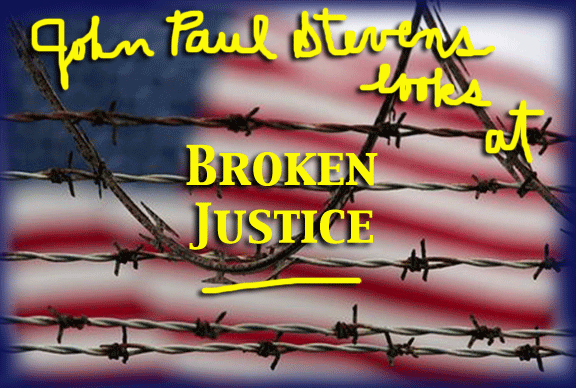
Former Supreme Court Justice John Paul Stevens reviews “The Collapse of American Criminal Justice” by William Stuntz in the November 10 issue of the New York Review of Books.
Stuntz, the highly respected Henry J. Friendly Professor of Law at Harvard University who died this year before the book’s publication, writes about, as his publisher Harvard University Press, puts it, how “the rule of law has vanished in America’s criminal justice system. Prosecutors now decide whom to punish and how severely. Almost no one accused of a crime will ever face a jury. Inconsistent policing, rampant plea bargaining, overcrowded courtrooms, and ever more draconian sentencing have produced a gigantic prison population, with black citizens the primary defendants and victims of crime.”
Yes, well, exactly.
Stuntz then goes on to examine how we got to this very sorry pass and what we might do to get ourselves out of the “Kafkaesque” situation.
It is fascinating to watch Stevens use his large and lovely legal mind to assess Stuntz’s thesis, even if he is, at times, a bit fussy in his deconstruction of this or that point, like a long-time copy editor pawing at a novel’s grammar before assessing its narrative.
In the end, Stevens concludes that anyone interested justice in would find the book “well worth reading” for the following three reasons:
“It is full of interesting historical discussion. It accurately describes the magnitude of the twin injustices in the administration of our criminal law. It should motivate voters and legislators to take action to minimize those injustices.”
About the last point: Let us hope so.
I’ve already ordered my copy.
